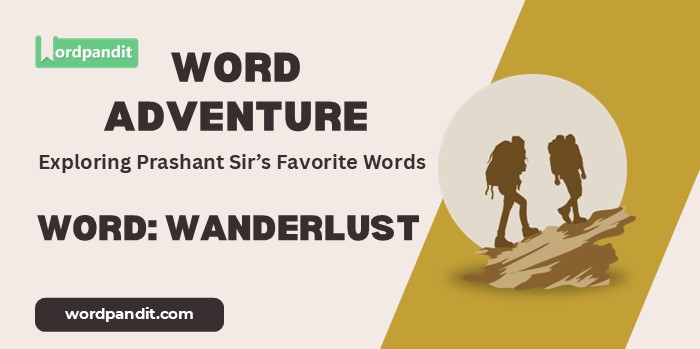Word Adventure: Wanderlust
The Headline
“Wanderlust: When Your Heart Has a Passport of Its Own”
The Scoop
In the vast lexicon of human desires, few words capture the spirit of adventure quite like ‘wanderlust’. This powerful term describes more than just a wish to travel – it embodies our deep-seated yearning to explore, discover, and connect with the world beyond our familiar boundaries. Join me as we unpack this evocative word that has inspired countless journeys and adventures.
Let’s Break It Down
The Plot Thickens
‘Wanderlust’ entered the English language in the early 20th century, borrowed directly from German where it had been used since the Middle Ages. In German culture, the concept of wanderlust was closely tied to romantic notions of self-discovery and connection with nature.
Interestingly, while the word itself is German, the feeling it describes is universal. Throughout history, cultures worldwide have celebrated the transformative power of travel, from ancient pilgrims to modern-day digital nomads. The German romantic movement particularly emphasized this connection between travel and personal growth.
Today, ‘wanderlust’ has evolved beyond its original meaning to encompass not just physical travel, but also the desire for new experiences and perspectives that travel brings. It’s become a cultural touchstone in our increasingly connected world.
Word in the Wild
The Twist
Here’s something fascinating: Scientists have discovered that the desire to travel might be genetic! Research has identified a gene variant, DRD4-7R, nicknamed the “wanderlust gene,” that’s associated with curiosity and restlessness. This suggests that for some people, wanderlust isn’t just a casual interest – it’s literally in their DNA. Perhaps this explains why some of us feel an almost physical need to explore while others are content to stay closer to home.
Make It Stick
Wanderlust: When your feet get itchy and your heart gets wings!
Your Turn
Think about what triggers your wanderlust. Is it a photograph of a distant place, the sound of a foreign language, or perhaps the smell of exotic spices? Share your wanderlust triggers in the comments below. Let’s explore how this universal yearning manifests differently in each of us!
Down the Rabbit Hole
- Curious about other German compound words? Explore ‘fernweh’ (farsickness), ‘weltschmerz’ (world-weariness), or ‘zeitgeist’ (spirit of the time).
- Interested in the psychology of travel? Look into concepts like ‘culture shock’, ‘reverse culture shock’, and ‘travel therapy’.
- Want to explore the history of human migration? Dive into topics like the Silk Road, ancient trade routes, or the Age of Exploration.
The Last Word
As we conclude our journey through the meaning of ‘wanderlust’, I hope you’ve gained a deeper appreciation for this word that captures humanity’s eternal desire to explore and discover. Whether you’re planning your next great adventure or simply dreaming of distant shores, remember that wanderlust is more than just a desire to travel – it’s a celebration of human curiosity and our endless capacity for wonder. Until our next word adventure, this is Prashant from Wordpandit, encouraging you to let your wanderlust guide you to new horizons!











